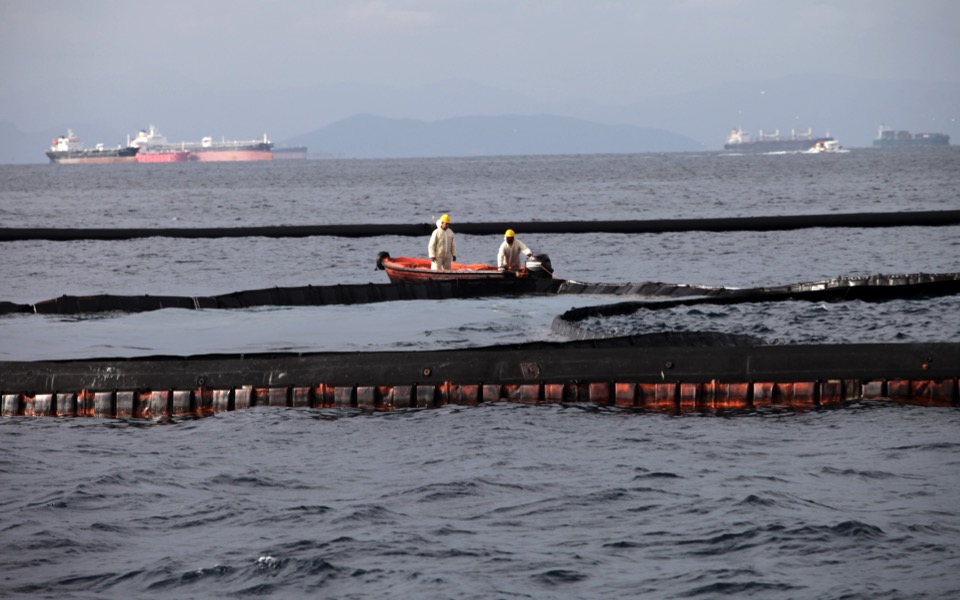Dicing with disaster

It’s been over a month since the Agia Zoni II tanker went down off the port of Piraeus and beyond the criminal delays of the political leadership and port authorities in dealing with the ensuing oil spill we still have no answers to the questions surrounding the causes of the accident, even though it’s only a matter of time before disaster strikes again.
If this small tanker – which is a minnow compared to some of the giants that sail in Aegean waters every day – was able to cause such extensive pollution – with experts speaking about significant damage to the ecosystem and warning against swimming and fishing for months – what would happen if a bigger one sank? The Agia Zoni II was carrying just 2,500 tons of oil, of which an estimated 500-600 tons leaked into the sea. If this were, say, a tanker the size of the Prestige – which went down off the coast of Spain 15 years ago carrying 60,000 tons of crude – what would be the effect in a closed gulf like the Saronic? Or what would the consequences be if the wreck had occurred near the Cycladic islands, off Syros or Myconos, for instance?
If any of the above were to actually happen, then we’d be talking about an ecological and economic catastrophe of gargantuan proportions, which would damage the area’s ecosystem for decades, wipe out tourism in any affected areas and radically alter the lives of island communities.
Nevertheless, no government to date (let alone the present one, which is notorious for its administrative inadequacy) has displayed any interest in the safety standards of the hundreds of tankers that cross the Greek seas every year or in the measures that are required to minimize the effects of a potential accident.
A prevention strategy, meanwhile, is even more imperative now that the country is seeking to become an energy hub with oil drilling platforms and storage tanks in different parts of the Aegean and Ionian seas. If you want to talk the talk, you should also walk the walk. Our political system may still be in swaddling clothes and incapable of reaching consensus on fundamental issues that many of its European counterparts settled decades ago (such as waste disposal, policing universities and paying off national debt), but it is unbelievable that we should systematically look away and allow the fate of Greece’s seas to depend on the position of a reef or a captain’s alcohol intake.
Greece needs to have set procedures and an organized plan to predict and manage accidents. Unfortunately, though, the powers that be prefer to stick to public relations stunts, quick fixes and a wait-and-see attitude rather than taking a proactive stance.





